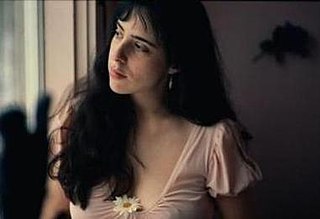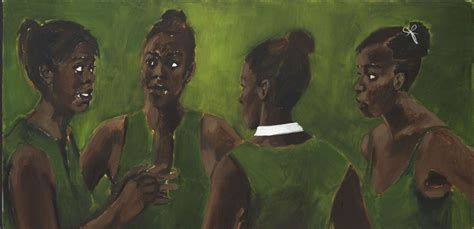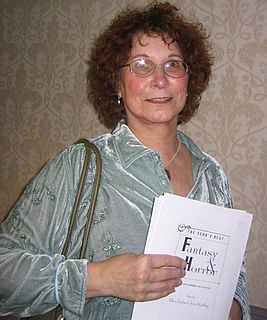A Quote by Robert Creeley
As I get older, I recognize that my thinking about poetry may or
may not have anything actively to do with my actual work as a
poet. This strikes me as no thing cynically awry but rather
seems again instance of that hapless or possibly happy fact,
we do not as humans seem necessarily aware of what we are
physically or psychically doing at all!
Related Quotes
The pain of loneliness is one way in which he wants to get our attention. We may be earnestly desiring to be obedient and holy. But we may be missing the fact that it is here, where we happen to be at this moment and not in another place or another time, that we may learn to love Him - here where it seems He is not at work, where He seems obscure or frightening, where He is not doing what we expected Him to do, where He is most absent. Here and nowhere else is the appointed place. If faith does not got to work here, it will not work at all.
I've never been able to write poetry without having vast tracts of dead time. Poetry requires a certain kind of disciplined indolence that the world, including many prose writers, doesn't recognize as discipline. It is, though. It's the discipline to endure hours that you refuse to fill with anything but the possibility of poetry, though you may in fact not be able to write a word of it just then, and though it may be playing practical havoc with your life. It's the discipline of preparedness.
For instance, I may bring a certain feminist perspective to my songwriting, because that's how I see life. I'm interested in art, poetry, and music. As that kind of artist, I can do anything. I can say anything. It's about self-expression. It knows no package - there's no such thing. That's what being an artist is.
You may have decided again and again, and again and again you have failed - not because smoking is such a great phenomenon that you cannot get out of it, but because you are trying from the wrong end. Rather than becoming aware of the whole situation - why you smoke in the first place - rather than becoming aware of the process of smoking, you are simply trying to drop it. It is like pruning the leaves of a tree without cutting the roots.
Judaism, Christianity, and I'm sure other religions also, are having to deal with the fact that they may or may not have lived up at all times to the injunctions of their own mystical center. For instance, when I went to Sunday school, I remember learning more about Jewish history than about God. So, once again, that doesn't mean there's anything wrong with the Jewish religion, it just means that sometimes people are not fed the mystical food - the spiritual food - of their own religious background.
It's hard to pin down what the politics would be, in a way. For me the politics are very visual and felt, thought, seen, but not necessarily put into words. The confusions and conditions within the work are the politics. The fact that a lot of the time the first thing people want to talk to me about is the racial angle, which is a part of the work and I am happy to talk about it, but it's not necessarily the first thing on my mind when I am making something.
O Lord, may I never want to look good. O Jesus, may I always read it all: out loud and the very way it should be. May I never look at the other findings until I have come to my own true conclusions: May I care for the least of the young: and become aware of the one poem that each may have written; may I be aware of what each thing is, delighted with form, and wary of the false comparison; may I never use the word "brilliant."
Like I said, I'm just grateful when anyone offers me a job. It's like, "Okay. I'll do it." FBI agent is one, too, when you get older. When you're kind of an older lady hard-ass, FBI tends to happen. It's just because I'd like to work rather than not work, so I'm just happy if somebody wants me to do anything.
You can publish a poem you think is a very important poem, and you don't hear a word from anyone. [...] You can publish a book of poetry by dropping it off a cliff and waiting to hear an echo. Quite often, you'll never hear a thing. So doing that, using older work, puts it in a context, and that sort of forces the reader to realize what its importance is-if it has any. Everything needs a context. You're not going to recognize a poet unless you have a context.







































